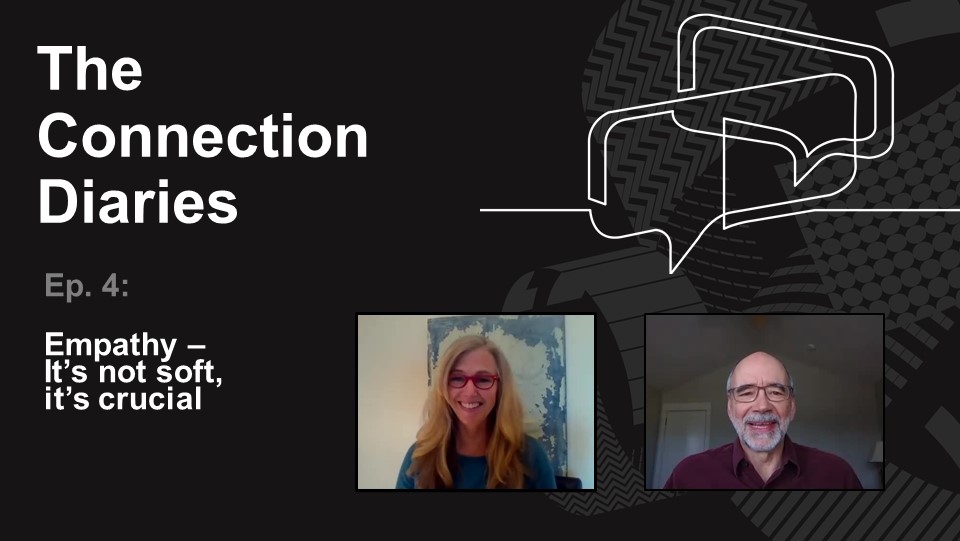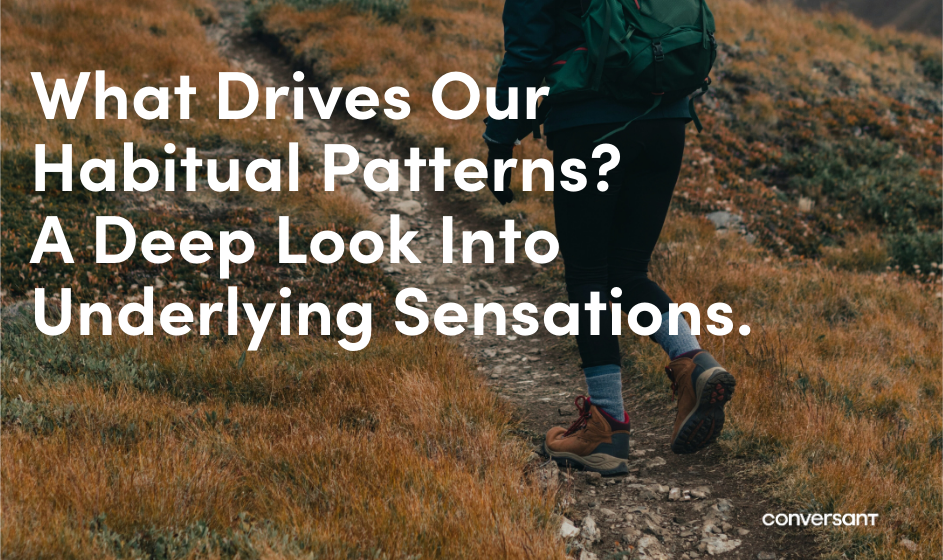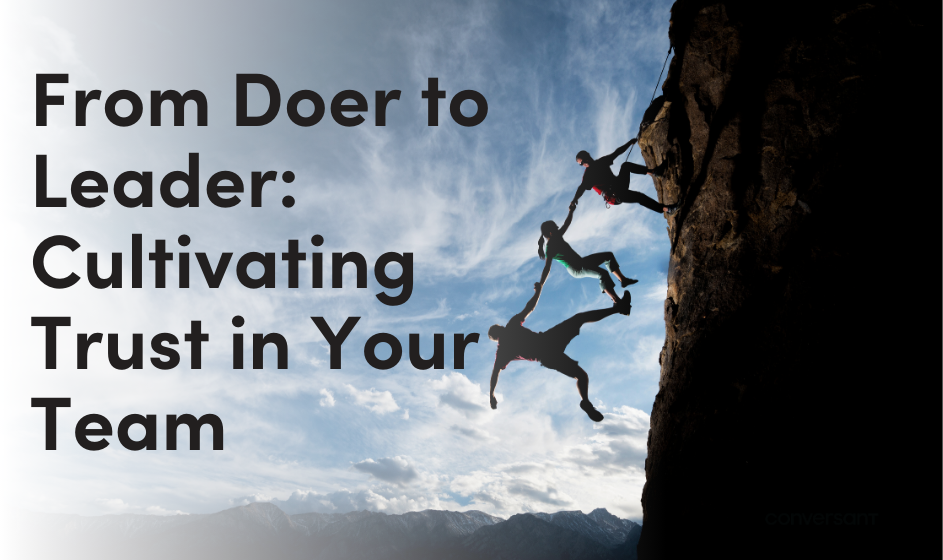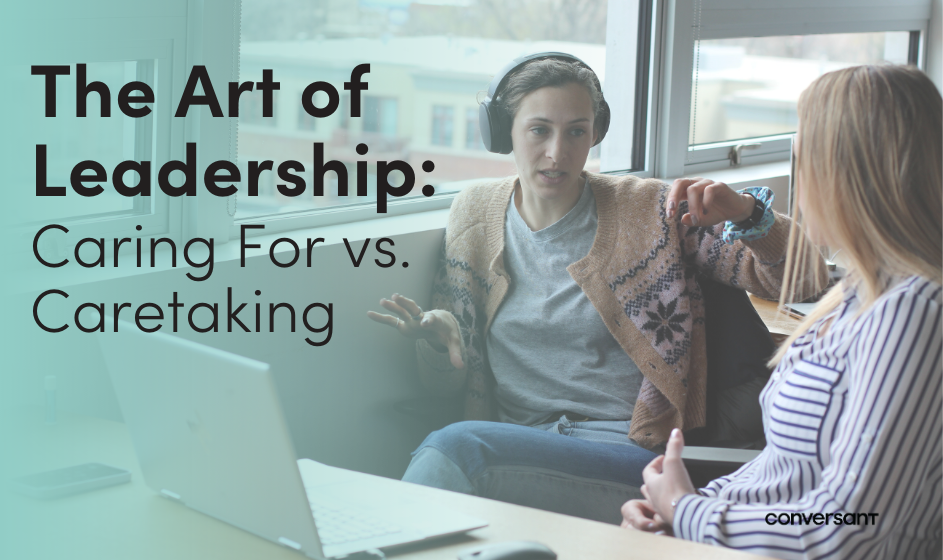Empathy builds trust, brings people together, increases joy and improves results
It’s the job of a leader to bring people together to achieve things they cannot on their own. If we deeply understand one another (the result of empathy), we build trust, resolve differences more easily and produce better results with less time, money, and stress.
When stress is high, as it is right now, the need for empathy goes up as people tend to retract and pay more attention to themselves. The person that can take a breath, open up, and care for the other is an unusual asset in a high-stress time.
Listening to learn
The truly curious leader who learns the purposes, concerns and circumstances of others is practicing empathy. When we gift another our curiosity about what really matters to them and share what we learned from being with them, they are likely to be more relaxed, open and confident.
Empathetic curiosity about what really matters to another is always impactful, even more so when it comes from someone with power and authority. In that experience, the distance between two people vanishes and they feel their leader is on their side, not above them.
Beware the four empathy killers
The four empathy killers are Hurry, Stress, Position Power & the Compulsion to be right and prove others wrong. Being conscious of these tendencies can help us catch our lack of empathy, take a breath and go back to listening to learn.
Presence is the precursor for Empathy
Presence has three ingredients: logical, emotional and physical. Taking a breath in moments of stress and disconnection is the physical path back to being fully present. Then we can refocus, logically understand purposes, concerns and circumstances and appreciate meaningful emotions.
It’s also important to show empathy for ourselves, as none of us are empathetic all the time. We can get off track, notice and correct. As we often say, “connection is an art of correction, not perfection.”
To find more of our insights and tools for practicing Empathy, you can explore the Empathy section of The Vitality Imperative and it’s online resources.
We will be hosting a live 30-minute conversation on this topic next week. Stay tuned for more details and registration by subscribing for our newsletter. We will continue to explore this topic and many others related to how we stay connected and keep creating value in challenging circumstances, so stay tuned for future episodes of The Connection Diaries.
If you and your community have been having inspiring conversations and ideas about how to navigate the COVID-19 reality, we would love to hear about them! Please comment below or connect with us on LinkedIn. Let’s unleash our collective brilliance.
Full Transcript
Carolyn: Hello everyone I’m Carolyn French with Conversant. Welcome to the connection Diaries. This is an ongoing conversation about how we stay connected and productive during the COVID-19 crisis. Today’s topic is empathy—it’s not soft, it’s crucial. I’m here with Mickey Connolly, the chairman of conversant and co-author of the Vitality Imperative. Mickey, why do you say empathy is not soft, it’s crucial?
Mickey: I think that empathy is all too often thought of as soft, and that concerns me because it discounts its importance. Anytime that a leader’s got to host work that involves people cooperating with one another, the capacity to truly understand other people at a deep level—at a level that’s not only intellectual it’s also emotional that has real compassion for what they’re in and how they feel. Whoever is great at that brings people together more rapidly, creates more trust, and gets more done with less time, money, and stress. So that sounds pretty important. When the stress is really high like it is right now, the need for empathy goes up because people tend to retract and pay more attention to themselves, so whoever can take a breath open up and care for the other is an unusual asset in a high-stress time. Now, I know you care about empathy as well, so give me something that matters to you that you think’s absolutely essential regarding empathy.
Carolyn: Yeah, I would say it’s listening to learn. The really truly curious leader, the leaders who are truly interested in other people’s concerns, the—what they’re for, what their purposes are, and what the circumstances are that they’re in. Those are leaders who are really practicing empathy. I know when I feel your curiosity about what’s important to me, what’s going on for me, what—what am I in, and then I hear you say that you learn something from me in that situation, I feel more open, I feel more relaxed and I’m more productive and confident.
Mickey: The way you’re talking about listening to learn, I think, is profoundly important. It’s also practical because if we simply know we have to focus on 3 things: people’s purposes, which is what they’re for; their concerns, which is what they’re against; and their circumstances, which is the situations they’re in. If we just carefully understand those 3 things and the emotions that accompany them, people will have an experience of empathy, and that tends to open them up where they feel much more trust, and we are together getting things done, so I love that as a focus listening to learn. Any other counsel you have for us who are not always-on empaths?
Carolyn: Well, I’m not either, but one thing that we can look at is the vitality—one thing we can look at is that the vitality imperative has an entire chapter on empathy. I particularly like the part where we say, “beware the four empathy killers.” Being conscious of those really helps me catch my own lack of empathy and take a breath and then go back to listening to learn from others. Those for empathy killers are stress, hurry, position power, and then the compulsion to be right or to make others wrong.
Mickey: Yeah, I think those are great warnings for us to attend to, especially the people who have positions of power and influence because if those people are not empathetic—any of us who enjoy in our own organizations a position of powerful influence—if we are not empathetic, we are at best misinformed, and at worst we are being self-absorbed bullies. So, I think those are really important and the position power one in particular strikes me at the moment.
You know, it’s only a few minutes we’re spending on this now, but I think if we look at what you’ve said and we’ve talked about here, there are few things that are worth taking away. One of them is, do you agree that empathy is important, that it’s both profoundly and practically important? And the second is, are you willing to be focused, present, and listening to learn? And that means caring for people’s purposes, concerns, and circumstances and the emotions that go along with those. And do we recognize that it’s an art of correction, not perfection. We’re not going to be always on and that requires some empathy for ourselves. And those empathy killers that you cited, Carolyn—that’s a good way for us to catch—ooh!—what if one of those come and derailed my own empathy? Take a breath and get back on. Taking a breath part reminds me of another of our Connection Diaries, which is on presence, because we say if you’re not fully present, it’s hard to be fully empathetic. I think for now, though, that’s enough. We hope that provokes some thinking and is somewhat useful to you. So Carolyn, how do we want to close this conversation?
Carolyn: Well, thanks again for joining us. We hope it was valuable to you. We will be hosting a longer 30-minute conversation about empathy with some of our clients from around the world next week, and if you’re interested in that, please click on the link to register. We’re happy that you joined us today, we hope that we can be together soon. Please stay well, be well, and we’ll talk to you soon.
Mickey: Bye-bye, everybody.




